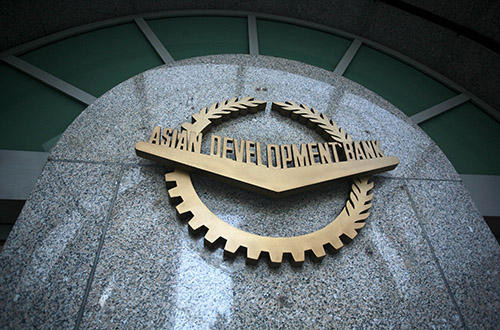India and the Asian Development Bank (ADB) signed a USD 500 million loan to support green and sustainable infrastructure projects aligned with the country’s climate commitments.
The agreement was signed on December 20, and the ADB loan, with a sovereign guarantee, will be extended to the India Infrastructure Finance Company Limited (IIFCL), according to a statement from the Union Finance Ministry. The signatories to the Financing Environmentally Sustainable Growth in Infrastructure Project were Juhi Mukherjee, Joint Secretary, Department of Economic Affairs, Ministry of Finance, for the Government of India, and Mio Oka, Country Director for ADB.
Mio Oka said, “ADB financing will help IIFCL provide long-term capital for infrastructure projects focusing on connectivity and energy transition, as well as under-resourced sectors like urban projects, education, and healthcare.”
In a press release, the Ministry of Finance stated, “To meet its net-zero commitments, the country needs immense private capital investment, which will require innovative financing platforms and risk-mitigation instruments to address inherent sector risks and market asymmetries. As a strategic development finance institution, IIFCL is well-suited to meet these needs.”
Last week, the central government and the Asian Development Bank (ADB) signed a USD 350 million policy-based loan under the second subprogram of the Strengthening Multimodal and Integrated Logistics Ecosystem (SMILE) program.
The Ministry of Commerce and Industry, in an official statement, stated that this policy-based loan aims to expand India’s manufacturing sector and improve the resilience of its supply chains. The signatories to the loan agreement were the Department of Economic Affairs (DEA), Ministry of Finance; the Department for Promotion of Industry and Internal Trade (DPIIT), Ministry of Commerce and Industry; and the ADB.
The SMILE program is a programmatic policy-based loan (PBL) to support the government in undertaking wide-ranging reforms in the logistics sector in India. The programmatic approach comprises two subprograms, which aim to expand India’s manufacturing sector and improve the resilience of its supply chains.
The program establishes and operationalizes a comprehensive policy framework to enhance logistics efficiency by strengthening the institutional bases for multimodal logistics infrastructure development at the national, state, and city levels.
The ministry also noted that it will help standardize warehousing and other logistics assets to strengthen supply chains, incentivize greater private sector investment, improve efficiencies in external trade logistics, and adopt smart systems for efficient and low-emission logistics.
The development of India’s logistics sector is vital to enhancing the competitiveness of its manufacturing sector. Through strategic policy reforms, infrastructure development, and digital integration, ongoing reforms are poised to transform the logistics landscape.














